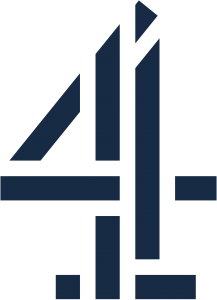In broadcasting Channel 4 leads the way in standing up for those whose voices are not always given the platform they deserve. Giving airtime to minority voices and issues was baked into Channel 4’s DNA when it was conceived by an Act of Parliament in 1982 and it is still an essential part of who we are today.
By Dan Brooke
Our determination to push boundaries has resulted in some of the most iconic moments in TV history – the first lesbian kiss on Brookside; the first long-running black sitcom in Desmonds; pioneering LGBT drama like Cucumber, Banana and Tofu; and, of course, the London Paralympic Games.
 We have evolved over the past three decades, but Channel 4’s identity remains true to its roots – edgy, challenging the status quo, alternative and still pushing those boundaries, on and off-screen.
We have evolved over the past three decades, but Channel 4’s identity remains true to its roots – edgy, challenging the status quo, alternative and still pushing those boundaries, on and off-screen.
I’m happy that so much has changed in Britain across the diversity spectrum, and in particular where disability is concerned. Public attitudes took a giant leap forward with the London Paralympics and I’d like to think Channel 4’s Superhumans campaign played a part in that.
Yes, the world has changed. However, according to Leonard Cheshire Disability, if the employment rate for disabled people matched that of the rest of the UK, an extra two million people would be working. That is a huge pool of UK talent going untapped by employers, including by Channel 4, just 2% of whose workforce is disabled.
So what are we doing about that?
A year ago we published a 360° Diversity Charter, including 30 different initiatives that we hope will further transform us, on and off screen, across all aspects of diversity.
One of these is the Positive About Disability double tick guarantee, whereby any candidate with an impairment who is qualified to do the job in question is guaranteed an interview. Others are simply to work with more specialist disability agencies and headhunters. But guess what? Simple things work! In 2015 6% of our new joiners declared themselves as having an impairment and we want to keep this up so that at least 6% of our workforce of 800 people, and of our top 120 leaders, are people with disabilities by 2020.
The charter also includes a commitment to train 24 disabled production graduates and six mid-level trainees to work on the Paralympics, which is going strong. Upon completion of the Games in Rio, we will sponsor all 30 trainees so they can sustain a career in the industry.
We’ve even announced 2016 as our Year of Disability. The work of the 30 initiatives in the charter continues, but we have added three new ones. The first is to progress the careers of 20 disabled people already working in the industry with 20 of our biggest production partners; second to ring-fence half of all our apprenticeships for disabled candidates, as well as a third of our work experience placements.
On-screen, we’re starting from a good place: The Last Leg, The Undateables, No Offence, Kitchen Impossible with Michel Roux Jnr, Flying to the Ends of the Earth and First Dates. But we need to go further, most especially to ensure that people with impairments aren’t just the theme of the programmes, but that they feature in all programmes, as people, regardless of their disability.
That’s why, third, we are committing to double the number of disabled people featured in 20 of our biggest programmes across 2016.
There is no doubt society’s attitudes towards disability have shifted, but I will keep fighting to put Channel 4 at the forefront of best practice as an employer and to keep challenging public perceptions as a broadcaster. Bring it on.
Dan Brooke is Channel 4 Chief Marketing and Communications Officer and the Channel 4 Board Diversity Champion.



